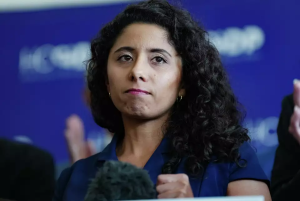Launched in April 2020 by the World Health Organization (WHO), European Commission, France and The Bill & Melinda Gates Foundation, the ACT Accelerator is a partnership of leading public health agencies with equity at its heart.
In under a year, the ACT Accelerator has driven real progress to accelerate the end of the COVID-19 pandemic. It has accelerated the development of COVID-19 tests, treatments, vaccines and health systems and transformed the ability to tackle COVID-19 on a global scale, but only if the world can ensure the equitable distribution of these vital tools.
However, the world continues to face an unprecedented and rapidly evolving threat from COVID-19. Three major shifts in the pandemic and the operating environment for the ACT Accelerator have necessitated a refresh of ACT Accelerator priorities, financing requirements, and investment case. First, COVID-19 vaccines are now available, but face acute supply constraints. Second, virus variants are emerging with increasingly concerning characteristics. Third, despite valuable support from governments, regulators, manufacturers, and other stakeholders, there has been insufficient investment in global solutions to scale COVID-19 tools.
The ACT-Accelerator is well positioned to respond to these challenges. In 2020, a substantial focus was on developing and evaluating a sound product portfolio by investing in R&D, product assessment, and market shaping, while laying the groundwork for large-scale procurement and in-country delivery. Now that an initial set of effective and affordable COVID-19 tools is available, resources are increasingly focused on optimizing their public health impact. In 2021, ACT Accelerator aims to fully leverage these existing tools and available volumes, then expand manufacturing, while continuing to invest in further R&D and product optimization.
The original ACT-Accelerator investment case published in September 2020 outlined a total requirement of US$ 38.1 billion to fully fund its work. Based on the refreshed strategic priorities outlined above, the Pillars have adjusted their resource needs. Despite generous donor contributions amounting to US$ 11.0 billion to date, ACT Accelerator continues to require an additional US$ 22.1 billion in 2021 to deliver on its full promise, and fund its vital work to deliver over 2 billion doses of vaccines, 900 million tests and up to 100 million of new treatment courses. The publication of a more detailed Strategy and Budget outlines the detail behind these numbers.
Tackling COVID-19 requires substantial financial investments, but the financial and economic ramifications of inaction are far greater. In January 2021, a study commissioned by the International Chamber of Commerce demonstrated that even with strong COVID-19 vaccine coverage in high-income countries, inequitable access to COVID-19 tools elsewhere would cost high-income economies an additional US$ 2.4 trillion in 2021 alone. Investing in ACT Accelerator dwarfs the potential multiplier benefits of domestic fiscal support investments. If COVID-19 transmission is uncontrolled anywhere in the world, it remains a threat to everyone everywhere in the world.
Commenting on today’s release of the Strategy and Budget, Dr Tedros Adhanom Ghebreyesus, Director-General of WHO, said: “The ACT Accelerator has made strong progress. But new viral variants, limited vaccine supply, and underinvestment have resulted in the need to refresh the strategy and budget that chart the roadmap out of the pandemic. As we approach the one-year anniversary of the ACT Accelerator, we call on all nations to come together in global solidarity. It isn’t just the right thing to do, it is also the fastest and most effective way to save lives, protect health systems and restore economies.”
Dr Richard Hatchett, CEO of CEPI, said: “In recent weeks COVAX has begun to turn the tide on the early inequity of the global vaccine rollout. However, with the increased spread of COVID-19 variants, we have entered a new and less predictable phase of the pandemic. It is crucial that the vaccines we have developed are shared globally, as a matter of the greatest urgency, to reduce the prevalence of disease, slow down viral mutation, and bring the pandemic to an end. And in parallel, we must redouble our R&D efforts so we have the tools we need to tackle emerging variants of the virus.”
Emma Hannay, Chief Access Officer & ACT-Accelerator Lead for FIND, said: “In less than a year, the ACT-Accelerator partnership has spurred the development and delivery of affordable, reliable rapid tests, scaled up manufacturing, and reserved important volumes for LMICs. But while we are moving quickly, so is the virus: the emergence of new variants across the globe underscores the ongoing need for equitable access to testing and strong surveillance systems so that we are not flying blind as the pandemic evolves. Detection of flare-ups and hotspot is key to stop case numbers from rebounding during vaccine roll out.”
Dr Seth Berkley, CEO of Gavi, The Vaccine Alliance, said: “Thanks to the US$6 billion committed by its donors to date, the Gavi COVAX Advance Market Commitment has been able to begin protecting at-risk groups in lower-income countries with life-saving COVID-19 vaccines. While our work is only just beginning, we can now see the benefits of a multilateral solution to this pandemic. I encourage countries and others to continue to support the ACT Accelerator’s critical mission across all pillars,” said Seth Berkley, CEO of Gavi, the Vaccine Alliance.”
Peter Sands, Executive Director of The Global Fund, said: “The ACT-Accelerator partnership has achieved major progress in less than a year, including the procurement of over 50 million COVID-19 tests for low- and middle-income countries. However, we now face a tough battle as new variants emerge, taking us into unknown terrain. Reducing inequities in testing is a critical, if we are to succeed in containing the spread of the virus and monitoring the emergence of new variants. We must continue to scale up the availability and deployment of rapid and affordable tests to support countries in their response to a fast-evolving pandemic.”
Henrietta Fore, UNICEF Executive Director, said: “As the production and availability of the COVID-19 vaccines ramp up, the revised strategy will ensure that countries have the resources and support they need to administer them equitably. As UNICEF supports this historic initiative, we will also continue focusing on other essential maternal and child health services, including immunization, which are critical to saving lives while we work to turn the tide on the pandemic.”
Dr Philippe Duneton, Unitaid Executive Director, said: “This new strategy reflects the epidemiological reality we are all now facing – a mutating virus that doesn’t respect national borders, which threatens the effectiveness of the tools we have to fight this pandemic. Now is the moment to push ahead with a firm commitment to equitable access for all to the treatments and tests we need to defeat COVID-19, alongside the roll-out of vaccines. Research and development, country-preparedness and the procurement of proven treatments, including medical oxygen, will all be vital in the months to come.”
We must ACT now, and ACT together, to end the acute phase of the pandemic.
Source: www.who.int









